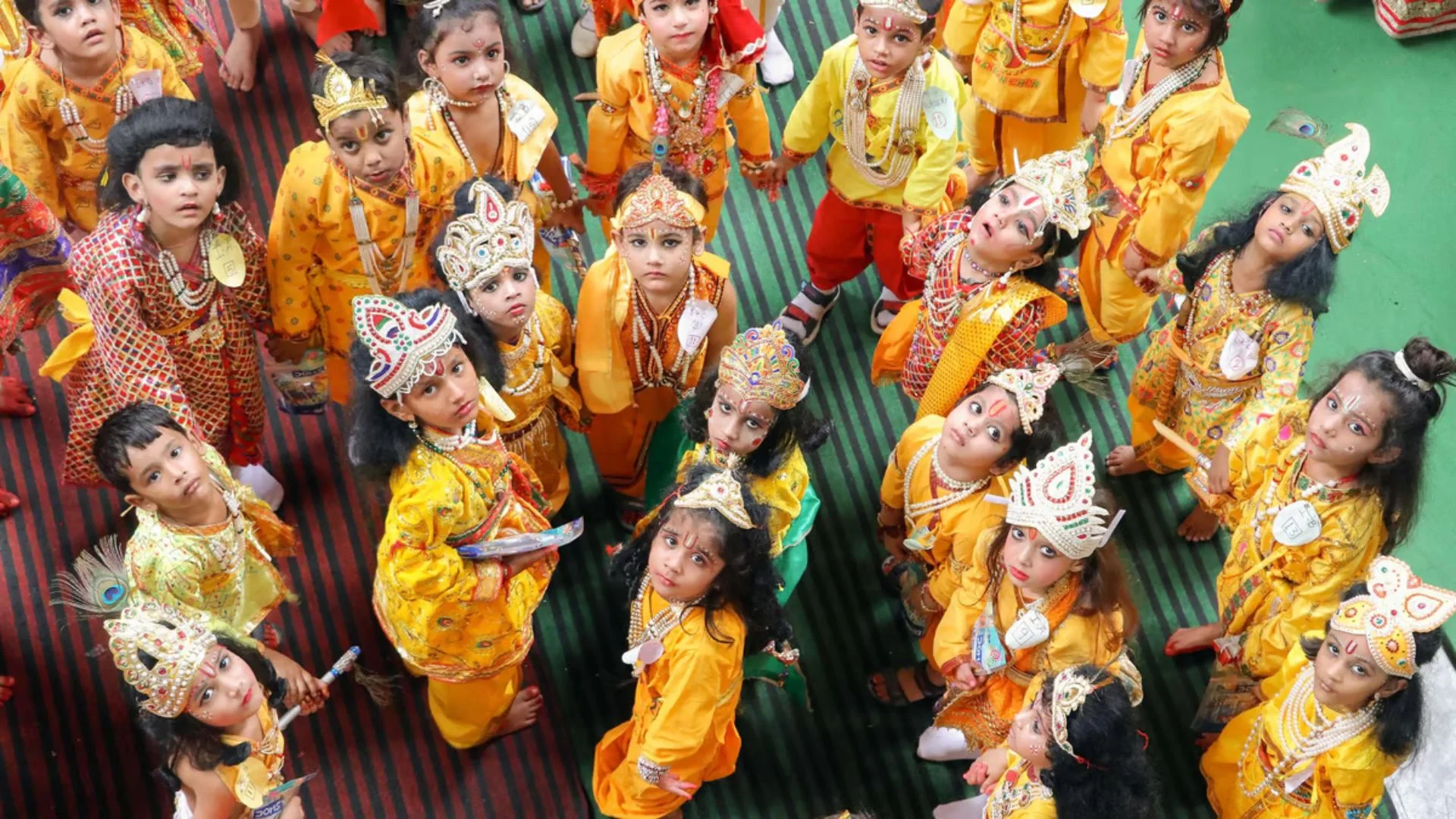Krishna Janmashtami, marking the birth of Lord Krishna, is celebrated with great enthusiasm worldwide, particularly in countries with significant Hindu populations. The festival, known for its vibrant rituals and cultural activities, adapts to local customs while preserving core traditions. Devotees engage in religious ceremonies, cultural events, and community gatherings, all centered around honoring Krishna.
Where the Celebrations Take Place
From Vrindavan to Vancouver, Belgium to Bangkok, New York to New Delhi, hundreds of thousands of Krishna devotees gather
- Fiji, where a quarter of the population practices Hinduism, Krishna Janmashtami is called “Krishna Ashtami.” The festivities span eight days, culminating in Krishna’s birth. Devotees gather in homes and temples to recite the Bhagavat Purana and sing devotional songs.
- Trinidad and Tobago, where over 60% of the population has Indian origins, the festival holds deep significance. The tradition dates back to the 18th century, brought by indentured laborers who carried their diverse cultural practices with them.
- New Zealand, the Sri Sri Radha Giridhari Temple in Auckland becomes a focal point for midnight prayers and devotional music.
- Canada, the Richmond Hill Hindu temple hosts musical concerts, with conch shells marking the auspicious hour.
- Malaysia, temples in Kuala Lumpur organize dramas and dances, and sweet prasads are distributed.
- Singapore’s Little India transforms into a vibrant market filled with sweets and decorations.
- Paris sees fasting and devotional singing at the Sri Sri Radha Parisisvara Temple.
- Australia, the Indian diaspora introduced Krishna Janmashtami to the Australian culture. The festival is celebrated with religious rituals, cultural events, and community gatherings.
The International Society for Krishna Consciousness (ISKCON), widely recognized as the Hare Krishna movement has spread around the world from Vrindavan to Vancouver, Belgium to Bangkok, New York to New Delhi. Making the Janmashtami festival to be celebrated and cheered almost everywhere.
What the Celebrations Involve
Krishna Janmashtami is celebrated through a combination of religious rituals and cultural activities. Devotees perform puja, offer prayers, fast, and stay awake until midnight to witness Krishna’s birth. Cultural events include traditional music and dance performances, plays based on Krishna’s life, and festive decorations in homes and temples. Community gatherings are marked by feasts, processions with Krishna idols, and various cultural programs that bring the community together in celebration.
Nepal, devotees flock to temples like Krishna Mandir in Patan Durbar Square to offer prayers. In United States, cities with large Indian diaspora populations, such as New York, Los Angeles, and Chicago, witness elaborate celebrations, with temples organizing bhajan sessions, cultural programs, and prasad distribution.
Significance of Krishna Janmashtami
Krishna Janmashtami, also known as Krishna Gokulashtami, is one of the most important festivals in the Hindu religion. It commemorates the birth of Krishna, the eighth avatar of Vishnu, celebrated on the eighth day of the Krishna Paksha (dark fortnight) of the Hindu lunar month of Shravana.
The festival’s significance lies in promoting religious devotion, preserving cultural heritage, and fostering a sense of community among Hindus worldwide. Despite variations in customs across different countries, the festival’s essence remains consistent: a celebration of Krishna’s divine birth and a reaffirmation of spiritual and cultural values.







